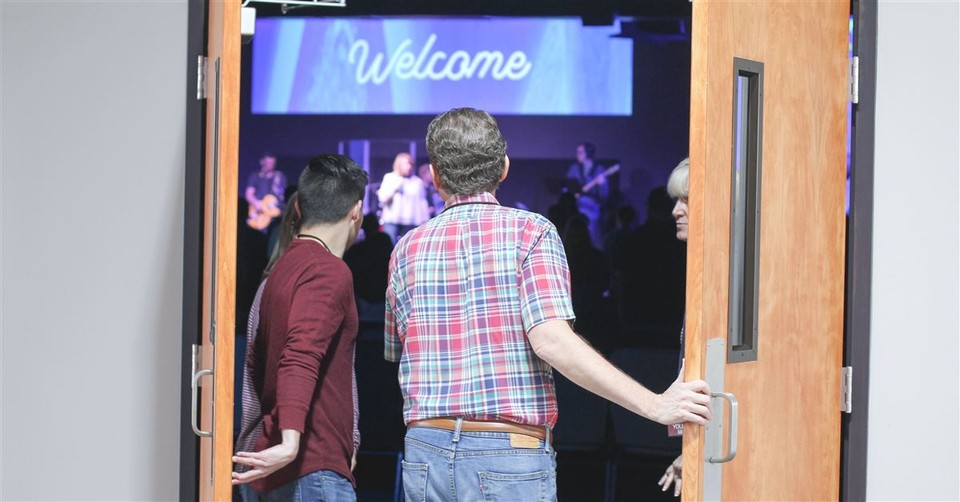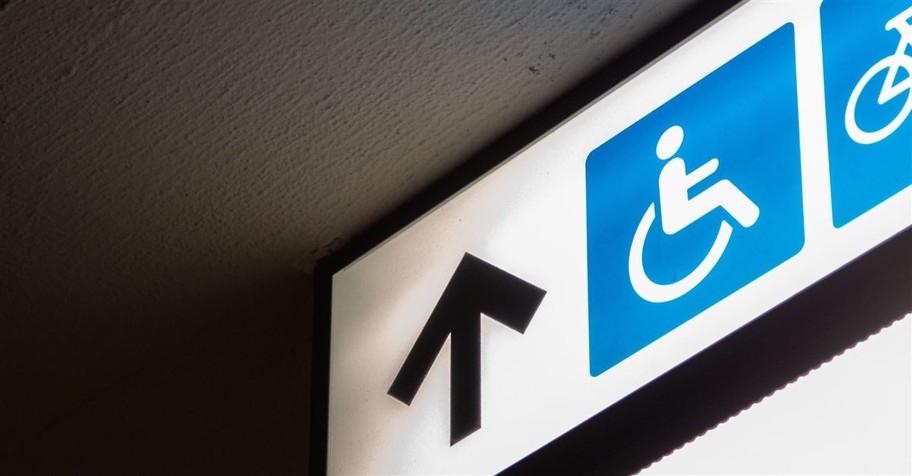5 Ways the Church Can Reach People with Disabilities

American culture functions in ways that often marginalize people with disabilities. Imagine the challenges of being a wheelchair user and traveling by plane, or being a blind person placing an order at a restaurant. The obstacles can be daily for those with disabilities to partake in even the most common activities. Church is no exception, and oftentimes, people with disabilities experience church to be a difficult place to get connected.
It is estimated that less than 2% of deaf people in America have a relationship with Jesus, according to statistics from Gate Communications. The opportunity is ripe to help people with disabilities find their home in a local church. It is possible to host specific events for people with disabilities and make adjustments so that church can be a more welcoming place. Here are five ways churches can reach out to and make modifications for people with disabilities.
Photo Credit: ©Unsplash/KristinaPaparo
1. Become more accessible
Accessibility is vital for those who are physically disabled or need wheelchair assistance to be able to attend church. It seems like an obvious consideration, but one friend recently shared with me that her stepdad, who is a new wheelchair user, attends a church with only one restroom located in the basement. Any member who cannot go up and down a set of stairs will not be able to use the restroom. For this family, and many others like it, restroom accessibility may be the deciding factor in attending church or not.
Churches can create wider aisles for those moments when members are invited to come up to the front of the church, so that wheelchair users will have the space to make their way up. It may be possible to even designate a deacon or volunteer to go to the seats of wheelchair users to serve them communion or to pray with them, so they don't miss out on practicing their faith.
Seating is another important accessibility issue. Make sure there are rows available for those who are physically disabled to sit next to their family. Use chairs that can be easily moved around if room needs to be made for a wheelchair.
Reserved parking spaces, ramp entrances, a volunteer to open doors, and larger restroom stalls are other ways to make churches more accessible. In the long run, helping a wheelchair user feel at ease navigating church will make it possible for them to keep coming back every week.
For blind church-goers, allowing them to set up a time outside of busy Sunday mornings to get familiar with the building will help them learn to navigate it themselves with confidence. Therefore, giving them a greater chance at feeling safe and empowered to come regularly.
Photo credit: Unsplash/CharlesPH

2. Designate reserved sections
Just as families with young children may have a designated section, a church should designate areas for members with disabilities.
Church can be a sensory overload for those with Sensory Processing Disorder (SPD) with the loud music, flashing lights, and various aromas present. Providing a designated section that is free of perfumes and overwhelming scents can help your SPD members feel more comfortable and provide them the option to attend and stay for the service.
A designated section can also be helpful for those that are deaf, so that they can easily find and see the interpreter for the service.
For blind church members, a designated section can be beneficial so they can access braille resources. This type of designated section would also help them connect with a volunteer who can describe parts of the service that would need explanation to someone who is blind or visually impaired (e.g.: a picture or prop being used during the sermon).
Photo credit: Getty Images/Katarzyna Bialasiewicz

3. Create quiet spaces
A common trend among churches is to air the service live outside of the sanctuary. Oftentimes, this is for overflow purposes, or children who get fussy, but some members may feel more comfortable in an area where they can view the service on a screen.
I attended a service in which an autistic child had a verbal outburst, and unfortunately, the only space the family could go to help calm their child was the restroom. Families with a loved one that has autism are often hesitant to go to church because their child may be sensitive to loud music or bright stage lights. Churches can have a separate room available for families to utilize during the service, just like the nursery is open for parents of little ones to breastfeed or change a diaper. This can make all the difference when a family of an autistic child is deciding to go to church.
A separate room can televise the service live, so the worship or sermon won’t be missed. It can be equipped with seating and tables, and other items to capture the interest of an autistic child or someone with an intellectual disability, such as pillows and blankets, books, soft toys, puzzles, games, and coloring books.
SPD church-goers may benefit from a “calm room.” The calm room can be painted in a neutral color, include dimmer light switches, a white noise machine, and comfortable furniture in neutral colors.
Ultimately, depending on the needs of your congregation, having a separate room available may lift the anxieties and fears enough to make it possible for certain families to once again attend church.
Photo credit: Getty Images/Maria Dubova

4. Connect them to ministry
People who attend church naturally want to get connected to others and have the chance to serve and make a positive impact. One issue to consider is how a church makes it possible for people with disabilities to get involved. Make sure that they, too, have ministry options available to them and that they are encouraged to participate.
Offering a Deaf-Blind ministry will provide opportunities for people to serve in the church (e.g.: greeters, coffee service, IT/power point assistance, nursery duty). This type of ministry could also offer events and small groups tailored to the Deaf-Blind community.
Whatever their disability, most are ready and willing to serve, if they know there are opportunities and ways for them to get involved.
Photo credit: Unsplash/Anna Earl

5. Offer necessary resources
The reality is that people with disabilities can benefit from minor modifications that will make church an easier place for them; and the resources offered can be adjusted, as well. Some other potential resources include:
- Braille and/or large print Bibles and bulletins could be made available for the visually impaired or blind.
- Noise cancelling headphones are an appreciated resource to SPD or autistic members throughout the service.
- It may be beneficial to have someone on staff or a committed volunteer who knows ASL. This will help when a Deaf attendee is in need of prayer, counseling, or mentoring. Hire professional interpreters for the Sunday morning service, but also for the Wednesday evening service and other events your church hosts. This makes it much easier for deaf people to attend events a church offers, to be trained in God's word, and to become part of the church family by removing the language barrier.
A person with disabilities goes to church to learn about Jesus and find a God-centered community. They desire to be seen as an equal part to the body of Christ, not someone broken that needs to be fixed. All are created in God’s image (Genesis 1:12) and all are fearfully and wonderfully made (Psalm 139:14).
Speak directly to church members with disabilities to learn their unique needs and preferences that will make it possible for them to keep attending church, get involved, and ultimately, deepen their relationship with Christ. Whichever adjustments the church is able to invest in and make will certainly be welcomed and valued by those with disabilities.
Photo credit: Getty Images/Xi Xin Xing

Originally published January 01, 2020.






